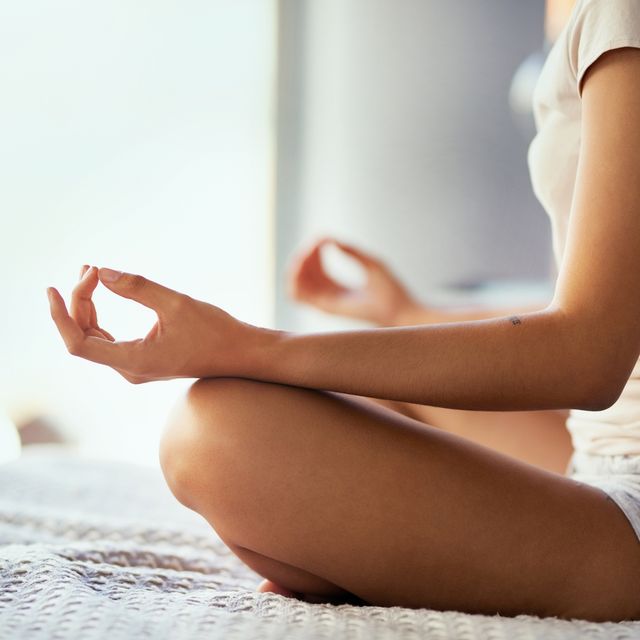News
Meditation and Better Sleep: Techniques for Restful Nights and Refreshed Mornings
In today’s fast-paced world, quality sleep is often elusive. Many struggles with restless nights, racing thoughts, and the inability to unwind. Fortunately, meditation offers a natural and effective solution for improving sleep. By incorporating specific meditation techniques into our nighttime routine, we can create a peaceful and serene environment for restful sleep. In this article, we will explore the powerful connection between meditation and better sleep, as well as techniques that can help you experience more restful nights and wake up feeling refreshed and rejuvenated.
The Science of Sleep: Understanding the Importance of Quality Rest

Sleep is a fundamental biological process that plays a crucial role in our overall well-being. To truly appreciate the benefits of meditation for sleep, it is essential to understand the science behind sleep itself. Sleep consists of various stages, each serving a unique purpose in restoring and rejuvenating our body and mind. The two main categories of sleep are non-rapid eye movement (NREM) and rapid eye movement (REM) sleep. NREM sleep is further divided into three stages, with each stage progressively deepening. During NREM sleep, our body repairs and regenerates tissues supports immune function, and consolidates memories. REM sleep, on the other hand, is characterized by vivid dreaming and is vital for cognitive function, learning, and emotional processing.
Sleep deprivation, which has become increasingly prevalent in modern society, can have a profound impact on our physical and mental health. Chronic lack of sleep has been linked to a variety of health issues, including increased risk of obesity, diabetes, cardiovascular disease, and mental health disorders such as depression and anxiety. Additionally, inadequate sleep can impair cognitive function, attention, and memory, negatively affecting our productivity and overall quality of life.
Establishing healthy sleep habits is crucial for promoting quality rest. Consistency in sleep schedules, creating a comfortable sleep environment, and practicing relaxation techniques before bedtime can all contribute to a more restful sleep experience. By understanding the science behind sleep and the detrimental effects of sleep deprivation, we gain a deeper appreciation for the importance of prioritizing and optimizing our sleep patterns.
Meditation, as we will explore in the subsequent sections, can be a powerful tool for improving sleep quality. By incorporating specific meditation techniques into our nighttime routine, we can calm the mind, release tension, and create a conducive environment for restful sleep. So, let’s dive deeper into the benefits of meditation for sleep and discover how it can transform our nights and enhance our overall well-being.
Relaxation Techniques for Better Sleep: Preparing the Mind and Body

Creating the right conditions for a restful night’s sleep begins with relaxation techniques that calm the mind and relax the body. In our fast-paced lives, it’s common to carry the stress and tension of the day into the night, making it difficult to unwind and fall asleep. Fortunately, meditation offers a range of practices that can help ease the mind and release physical tension, preparing you for deep and rejuvenating sleep.
Deep breathing exercises serve as a powerful tool to induce relaxation. By focusing on your breath and taking slow, deep inhalations and exhalations, you activate the body’s relaxation response. This simple practice helps slow down the heart rate, lowers blood pressure, and reduces stress hormones, allowing you to enter a state of calmness and tranquility.
Progressive muscle relaxation involves systematically tensing and then releasing different muscle groups in the body. Starting from the toes and working your way up to the top of the head, you deliberately tense each muscle group for a few seconds before consciously relaxing them. This technique promotes body awareness and helps release physical tension, making it easier to achieve a state of physical and mental relaxation conducive to sleep.
Body scan meditation is another effective relaxation technique. It involves bringing attention to different parts of the body, scanning from head to toe or vice versa, and observing any sensations or areas of tension. By cultivating a non-judgmental awareness of the body, you can identify areas of tension and consciously release them, allowing for a deeper sense of relaxation and promoting better sleep.
Incorporating these relaxation techniques into your bedtime routine can have a profound impact on your sleep quality. Set aside a few minutes before bed to engage in deep breathing exercises, progressive muscle relaxation, or a body scan meditation. Find a quiet and comfortable space where you can fully focus on these practices without distractions. As you engage in these techniques consistently, you will notice a gradual shift in your ability to relax and unwind, paving the way for a restful night’s sleep and a refreshed morning.
The key to successful relaxation techniques for better sleep lies in consistency and practice. Experiment with different techniques and find what works best for you. By dedicating time to prepare your mind and body for sleep, you can create a peaceful and nurturing bedtime routine that promotes deep rest and rejuvenation. Embrace these relaxation techniques as a gateway to a night of blissful sleep and wake up feeling renewed and ready to embrace the day ahead.
Cultivating a Peaceful Sleep Environment: Creating the Ideal Setting
A peaceful sleep environment can significantly contribute to the quality of your sleep and overall well-being. Designing a sleep-friendly bedroom involves considering various factors that promote relaxation and tranquility. One important aspect is lighting. Optimal lighting conditions for sleep include using dim, soft lighting in the evening to signal to your body that it’s time to wind down. Avoiding bright screens before bed is also crucial as the blue light emitted can disrupt your sleep-wake cycle. Another consideration is the temperature of your bedroom. Keeping the room cool, between 60 to 67 degrees Fahrenheit (15 to 19 degrees Celsius), can help create a comfortable sleeping environment. Additionally, reducing noise distractions is essential for restful sleep. Consider using earplugs, white noise machines, or soothing music to mask any disruptive sounds.
Meditation can further enhance the peacefulness of your sleep environment. Incorporating calming scents, such as lavender or chamomile, can create a soothing atmosphere that promotes relaxation. You can use essential oils or scented candles in your bedroom to create a pleasant aroma. Utilizing soothing music or white noise can help drown out external sounds and create a consistent auditory backdrop conducive to sleep. Establishing a consistent bedtime routine that includes a brief meditation practice can signal to your body and mind that it’s time to unwind and prepare for sleep. Engaging in a calming activity like meditation before bed can help clear your mind, release tension, and transition into a state of relaxation.
By prioritizing the creation of a sleep-friendly environment and incorporating meditation techniques, you can cultivate a serene atmosphere that supports deep and restorative sleep. Experiment with different strategies and find what works best for you. With a peaceful sleep environment, you can optimize your sleep quality and wake up feeling rejuvenated and ready to embrace the day ahead.
Mindfulness Meditation for Sleep: Guided Practices and Techniques

Incorporating mindfulness meditation into your nightly routine can be a game-changer when it comes to achieving restful and rejuvenating sleep. Mindfulness meditation offers specific techniques that help promote relaxation and improve sleep quality. By practicing guided mindfulness meditations, you can cultivate a state of awareness and presence, allowing you to let go of racing thoughts and worries that often keep you awake at night.
These guided practices focus on bringing your attention to the present moment, encouraging you to observe your thoughts and emotions without judgment or attachment. By cultivating a non-judgmental attitude, you create a safe space within yourself to acknowledge and release any anxieties or stresses that may be hindering your sleep. This process allows you to detach from negative thought patterns and enter a state of calm and tranquility.
During mindfulness meditation for sleep, you will be guided to engage in deep and rhythmic breathing, which helps activate the body’s relaxation response. This deep breathing technique signals to your body that it is safe to let go and unwind, promoting a state of physical and mental relaxation conducive to sleep.
Gratitude and peace are central aspects of mindfulness meditation for sleep. You will be encouraged to cultivate a sense of gratitude for the present moment and express appreciation for the blessings in your life. This practice shifts your focus from worries and stressors to positive aspects, fostering a more peaceful mindset before sleep.
To incorporate mindfulness meditation into your nightly routine, set aside a specific time and find a comfortable and quiet space. You can use guided meditation apps or recordings that provide step-by-step instructions to help you navigate the practice effectively. Begin by focusing on your breath, allowing it to guide your attention and anchor you in the present moment. As thoughts arise, simply acknowledge them and gently bring your focus back to your breath. Gradually expand your awareness to include sensations in your body, sounds around you, and the environment you are in. Embrace a sense of acceptance and compassion for yourself throughout the practice.
By incorporating mindfulness meditation into your nightly routine, you create a consistent and calming ritual that signals to your mind and body that it’s time to relax and prepare for sleep. Over time, this practice can help you let go of the day’s stresses, promote deeper sleep, and wake up feeling refreshed and revitalized.
The key to success with mindfulness meditation for sleep is consistency and patience. As you continue to cultivate this practice, you will develop a deeper connection with your inner self, experience improved sleep quality, and enjoy the numerous benefits that come with a well-rested mind and body.
Restful Nights, Rejuvenated Mornings
Incorporating meditation into your sleep routine can be a transformative practice for improving the quality of your rest. By understanding the science of sleep, practicing relaxation techniques, creating a peaceful sleep environment, and embracing mindfulness meditation, you can experience the benefits of better sleep and wake up feeling refreshed and rejuvenated. Take the time to cultivate a bedtime ritual that incorporates meditation, and discover the profound impact it can have on your sleep and overall well-being. Sweet dreams await!


